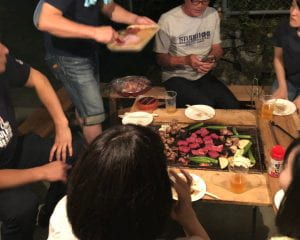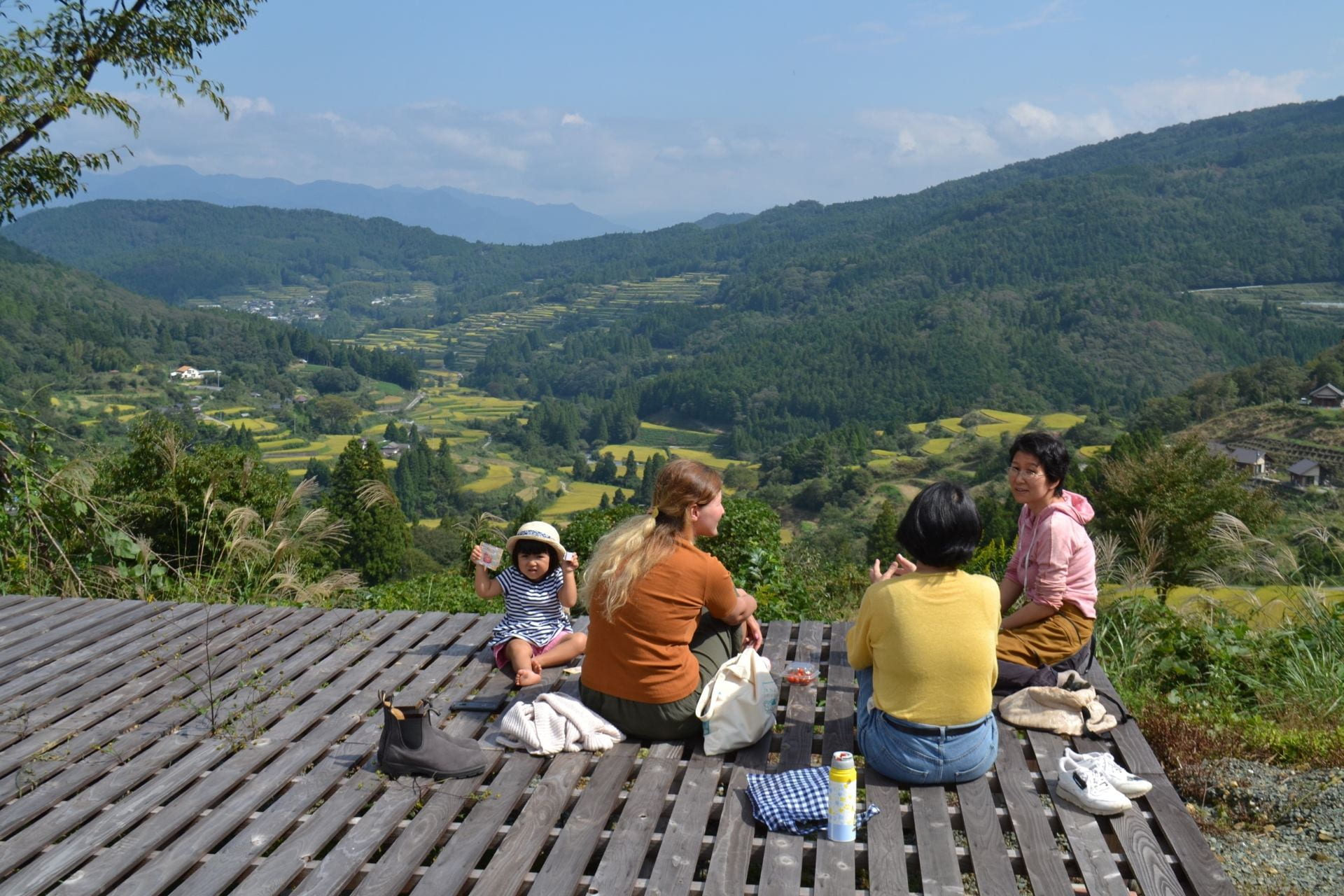The stigma of illness during coronavirus in Japan
By Laura Haapio-Kirk, on 17 July 2020

Care workers adapt to the coronavirus in Japan. Names have been changed. Illustration by Laura Haapio-Kirk.
“We often hear the word jishiku repeatedly during this (coronavirus) time. Jishiku means, Ji: self, Shiku: 粛 refrain, or restrain. In my opinion it’s very much based on Japanese mura (village) culture where everyone looks at what everyone else is doing. It is the big reason why the elderly in rural areas are so nervous to be infected, although the cases are quite low there. You will be mura-hachibu (ostracised) if you get infected in a small mura where everyone knows you well.”
Speaking with Dr Kimura, a social nutrition researcher at Osaka University who conducts fieldwork in Tosa-cho, the same rural Kōchi town where I spent time, she asserts that mura culture is alive and well in rural areas while diminishing in urban areas around the rapid economic growth period of ’80s and ’90s (kodo keizai seichou). The small communities that remain in rural areas who still practice rice-farming tend to be close-knit and everyone knows everyone else’s business. “Here, gossip travels faster than the internet”, says one local woman in the town.
The number of coronavirus cases has remained relatively low across Japan, however now (in July 2020) the numbers are rising in major cities, and Kōchi city, which is a one hour drive away from Tosa-cho, has reported cases again after the prefecture was declared free of coronavirus months ago. This uncertain time has significantly impacted on the lives of older people who are largely remaining at home, with events and social clubs cancelled. But even when things open up again, the social stigma of illness may act as a deterrent to engage freely in social activities. The fear of social ostracisation because of a perceived lack of self-restraint may be greater than the fear of the illness itself.
Yamakubi san, the head of the social welfare office, who usually co-ordinates household visits by social workers, has been motivated by the virus to explore ways for her staff to keep in contact with elderly people remotely. While some are confident with using a smartphone, many others are not. Many older people still use flip-phones and landlines and would find it difficult to engage in video calling. If one of the main issues facing older people during the COVID-19 pandemic is social isolation, this is exacerbated by the inability to use new communication technology. But when older people are interested in developing their digital literacy, such as by joining a smartphone club – as is the case with a number of people in Tosa-cho, they are keen to explore the potential of smartphones for keeping connected during this time. For example, I am part of a LINE (Japanese messaging app) group that that consists of a group of women in their 60s and 70s, which has become a space for sharing virus-related information and photos of home-made facemasks. COVID-19 has shown just how critical digital literacy interventions are when tackling social isolation, which can be compounded by the stigma of catching the virus.
 Close
Close






